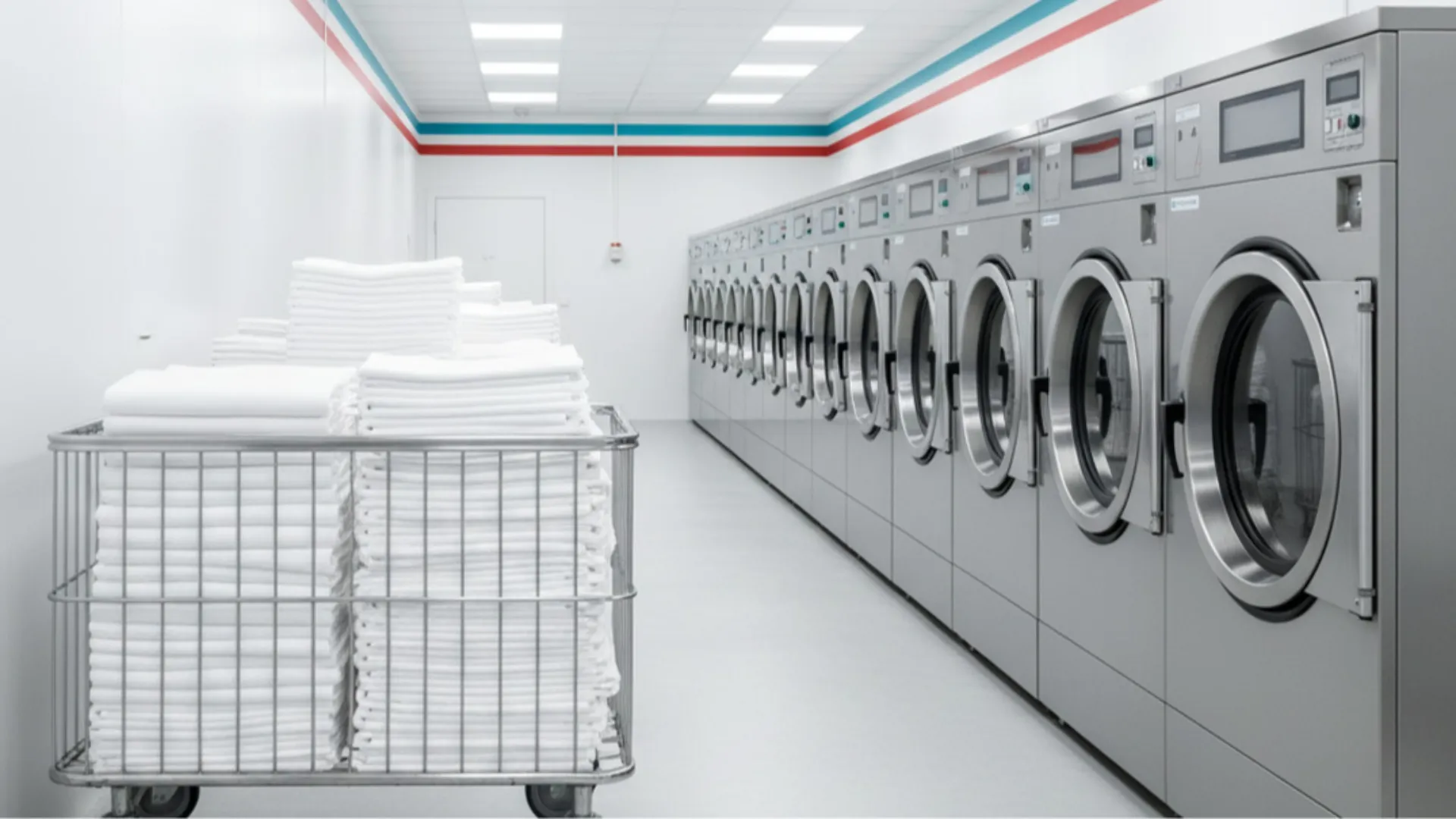This content is prepared for organizations serving large-scale enterprises such as hotels and hospitals. Targeting corporate managers and business owners, it explores how industrial laundry applications and hygiene standards impact operational success. The aim is to inform readers about washing processes that enhance efficiency and support investment decisions. The text integrates high-capacity washing requirements, textile maintenance technologies, and energy-saving approaches, offering a corporate perspective on mass washing solutions, automation systems, and industrial cleaning equipment selection. Key themes include cost control, process standardization, inventory optimization, quality assurance protocols, and sustainable cleaning practices. The content provides actionable recommendations and evaluation criteria for decision-makers, focusing on reducing operational costs and strengthening hygiene standards.
New Standards in Corporate Cleaning with Professional Industrial Washing Services
At the corporate level, cleaning management delivers sustainable results through comprehensive planning, proper equipment selection, and disciplined implementation. Professional industrial washing services are designed to standardize operational processes and meet institutional hygiene expectations. Evaluating industrial laundry infrastructure involves analyzing efficiency, energy use, and maintenance costs; this defines a roadmap compatible with industrial washing practices. Whether for hotels, healthcare facilities, or large production centers, professional industrial washing provides processes tailored to meet high-capacity demands. When managers understand textile care technologies and mass washing systems, procurement decisions improve significantly. Sustainability strategies and energy efficiency are fundamental elements of professional industrial washing. Long-term ROI emerges through integrated automation and high-performance industrial cleaning equipment. Core benefits include hygiene compliance, increased workforce efficiency, cost control, extended textile lifespan, and reduced environmental impact. Professionally managed washing services minimize operational risks, improve traceability, and reinforce quality systems, especially when implemented in coordination with certified service providers.
Efficiency in Large-Scale Laundry with Industrial Systems
Efficiency in large-scale laundry operations relies on process design, proper machinery, and trained personnel. Corporate clients enhance productivity and consistency through professional industrial washing services that optimize workflow. Managing high laundry volumes requires close coordination between clients and service providers—covering process planning, maintenance scheduling, and performance metrics. Industrial laundry projects demand integration of large-capacity machines, automation systems, and textile care technologies. Many organizations achieve labor efficiency and process standardization through collective washing solutions. When supported by quality control, traceability, and performance monitoring, these services reduce operational costs while maintaining fabric durability. Energy-saving techniques and water management, combined with routine maintenance, boost effectiveness. Strategic supplier partnerships and contractual clarity accelerate ROI, while long-term collaborations with industrial laundry providers strengthen flexibility and sustainability.
Cost and Time Savings Through Industrial Washing Solutions
For corporate enterprises, cost control, speed, and scalability are top priorities. Industrial washing solutions reduce expenses, shorten process cycles, and ensure operational continuity through careful planning and appropriate equipment selection. Partnering with professional industrial washing providers yields long-term financial benefits; proper machine use, energy-efficient methods, and preventive maintenance optimize total ownership costs. Collective washing systems reduce labor dependency and improve predictability, serving as key evaluation criteria in provider selection. Automation integration accelerates cycles, minimizes errors, and supports hygiene compliance. Companies should evaluate total cost of ownership (TCO), analyze reference projects, and review performance data. Supply chain managers must define service levels, maintenance responsibilities, and reporting standards clearly within contracts. This alignment maximizes equipment utilization, enhances operational agility, and improves investment payback.
Raising Hygiene Standards with Automated Washing Systems
Automation ensures consistency, traceability, and control in institutional laundry operations. Modern automated washing systems, when configured with proper parameters, have a direct impact on hygiene outcomes. These systems, designed for professional industrial washing services, are customized to facility needs. Management reports should include indicators measuring the efficiency of industrial washing processes—covering cycle durations, water and energy use, waste reduction, and quality test outcomes. Automation enhances process control, optimizes consumption, and boosts textile technology performance. Unified data platforms strengthen reliability, while real-time monitoring supports predictive maintenance. Professional service providers reduce breakdown risks, improve efficiency, and reinforce compliance. Automation integrated with professional industrial washing increases throughput and reduces operational risks for large-scale clients.
Energy-Efficient Operations with Sustainable Cleaning Technologies
Sustainable cleaning technologies deliver cost savings, resource efficiency, and environmental benefits in institutional operations. Businesses can lower carbon footprints and operating expenses through energy-saving washing practices aligned with professional industrial standards. These services optimize water management, enhance maintenance cycles, and implement energy-efficient processes. Integrated textile care technologies minimize water use and reduce machine energy demand, improving overall performance. When internal cleaning policies align with sustainability goals, supply chain transparency increases. Corporate managers should select providers with sustainability-focused metrics, emphasizing environmental reporting and performance evaluation. Choosing professional industrial washing solutions contributes directly to sustainability goals while ensuring equipment efficiency. This synergy delivers both economic and ecological returns in the short and long term.



